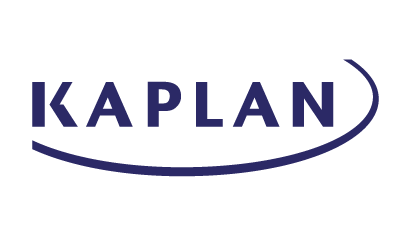How to become an accountant
Want to become an accountant? We cover everything you need to know about this diverse profession so you can take your first steps into the finance sector.

The world of accountancy is often unfairly judged by those outside of the profession, but the reality is that it offers excellent career opportunities and competitive salaries.
If you’re considering a career in finance and have good analytical skills, the role of an accountant could be right for you. In this article, we’ll share some tips on how to become an accountant, as well as all the essential information you need to get started.
From discussing the qualifications you need to become an accountant to what you’ll be doing day-to-day, FutureLearn will help you make an informed decision on whether your dream job lies in accountancy.
What does an accountant do?
As an accountant, you’ll provide financial advice to businesses so they’re able to manage their finances more effectively. This involves monitoring a company’s transactional history to report on any potential risks and coming up with a plan to reduce and improve them.
The specific responsibilities of an accountant will depend on the area they specialise in, but here is a general overview of what to expect:
- Tracking and examining company income and spending
- Preparing financial reports
- Running payroll and conducting audits
- Checking the accuracy of financial documents
- Identifying and investigating financial risks
- Giving advice on budgeting
- Working out how to maximise profit
- Dealing with tax issues
As you can see, the role of an accountant is a lot more varied than people think. It rewards those that want a career in finance, opportunities to progress, and isn’t just about number-crunching.


What qualifications are required to become an accountant?
Unlike many professions, you don’t need a degree to become an accountant. However, it’s often desirable. The good news is that it doesn’t have to be a degree specifically in accountancy. Usually, degrees in subjects like maths, economics, business and finance will do.
For those looking for an alternative to the university route in the UK, the qualifications needed to become an accountant can be obtained through one of the industry’s leading professional bodies:
- Association of Accounting Technicians (AAT) – combining industry knowledge and practical work skills, the AAT accounting courses consist of four qualifications across three different levels. This includes level 2, 3 and 4.
- Association of Chartered Certified Accountants (ACCA) – spread across two levels (fundamentals and professionals), ACCA qualifications cover a broad spectrum of topics so you can be confident that you’ll gain the right skills for a career in finance.
- The Association of International Accountants (AIA) – offers a range of qualifications, specialist diplomas, and conversion programmes. AIA qualifications aim to support you through every stage of your career.
- Institute of Chartered Accountants in England and Wales (ICAEW) – the ICAEW Chartered Accountant qualification (ACA) is one of the most advanced learning and professional development programmes available, giving you the skills and experience to become a qualified ICAEW Chartered Accountant.
- Chartered Institute of Management Accountants (CIMA) – CIMA’s CGMA (Chartered Global Management Accountant) Professional Qualification provides the knowledge you need to build a successful career in business or finance.
The AAT qualification is typically the minimum level expected of an accountant. However, to become a chartered accountant, you’ll need to progress to the ACCA, ACA, or CIMA qualifications.
What skills are needed to become an accountant?
The key skills required to become an accountant are vast and varied. Here, we take a look at some of the main accountancy skills you’ll need to have:
- Impressive analytical skills
- Good financial knowledge and understanding
- Organisational skills
- Ability to work under pressure and good at problem-solving
- Strong mathematical ability
- Good communication skills
- Time management
- Adaptability and flexibility
If you already have some of the skills listed above, then you’re well on your way. A lot of the more technical skills associated with the job can be learned through your studies and as you become more experienced.
How long does it take to become an accountant?
The amount of time it takes to become an accountant depends on the academic route you take and any specific job requirements, such as the level of experience needed or additional qualifications. However, on average, you can expect it to take between three to seven years.
This timeframe is the same for those that go down the university route, and those that gain a qualification through a professional body (including the subsequent practical experience required).


Accountant salary: how much could you earn?
An accountant’s salary is dictated by the country you choose to work in, the organisation you work for, the amount of experience you have, and how senior you are.
In the UK, as a guide, graduates can expect to earn up to £25,000. Once chartered and with two to four years post-qualification experience, your salary could jump to £56,000 and later rise to £90,200 with an additional five or more years of experience.
According to Indeed, the average accountant salary in the UK is £35,015.
Other average salary expectations from around the world include:
What careers are available as an accountant?
The accountancy profession is very diverse and varied, which means there are plenty of different areas you can specialise in. Some of these different career options include:
- Bookkeeper – balances accounts, processes invoices, payments and receipts, and completes VAT returns.
- Auditor – prepares financial statements and advises on tax and treasury issues, approval procedures, and management policies.
- Accounting technician – supports the preparation of financial accounts, bookkeeping, invoicing, payroll, and tax returns.
- Management accountant – monitors and assists the financial planning of an organisation.
- Chartered accountant – audits accounts, gives accounting advice, and provides information about financial records and corporate finance.
- Public financial accountant – works for the civil service to manage the financial planning and allocation of resources for government departments.
- Payroll manager – oversees the work of a payroll team in an organisation.
- Tax accountant – analyses, interprets and researches tax legislation to make sure organisations comply with the correct tax regulations when filing annual accounts.
- Financial accountant – produces reports and recommendations to organisations after an internal or external audit.
As you progress in your role and gain more experience, you’ll also find that you can advance quickly within the financial sector. For example, you could end up becoming a finance manager or finance director within 10 years.
How to become an accountant: additional learning
Becoming an accountant can open doors to a rewarding and fulfilling career. Now that you know more about how to become an accountant and the requirements to succeed in this profession, you’re one step closer to a bright future in the world of finance.
If you’d like to develop your understanding further, why not take a look at our wide range of finance and accounting courses today? At FutureLearn, we provide you with all the learning tools you need to flourish in your chosen profession.
Online accounting and finance courses at FutureLearn
- Introduction to Financial Accounting by the University of Padova
- Introduction to Accounting and the Accounting System by Kaplan
- Accounting for Today’s Dynamic World by Auckland University of Technology (AUT)
- Financial Analysis for Business Performance: Planning, Budgeting, and Forecasting by FutureLearn
- Accounting With Xero: A Beginner’s Guide by the Career Academy and Xero
- Financial Accounting for Business Management by Sentinel|9
- Complete Practical Bookkeeping by Kaplan






